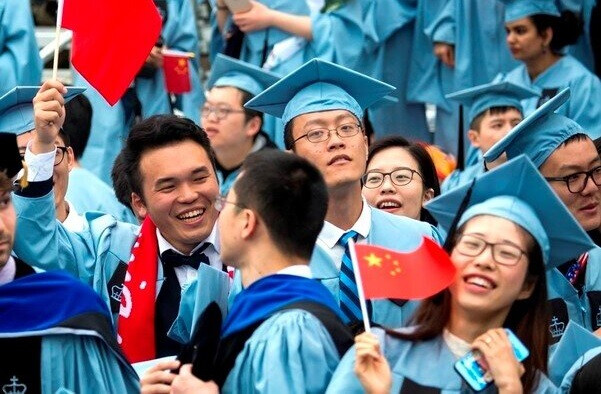
WASHINGTON D.C. – The United States government has dramatically sharpened its policy regarding international students, specifically targeting those from China, amidst burgeoning concerns over national security and intellectual property. This move, spearheaded by Secretary of State Marco Rubio, signals a significant escalation in the ongoing diplomatic and economic friction between Washington and Beijing. The announcement comes on the heels of the Trump administration's directive to temporarily halt new visa interview schedules for international students, indicating a systemic overhaul of the visa vetting process.
On May 28, Secretary of State Marco Rubio issued a stark statement declaring the U.S. will "aggressively revoke visas for Chinese students," explicitly singling out individuals with ties to the Chinese Communist Party (CCP) or those pursuing studies in "critical fields" such as science, technology, engineering, and mathematics (STEM). This directive is driven by fears that knowledge and advanced technologies acquired by Chinese students in American institutions could be transferred to the Chinese government, potentially bolstering its military capabilities or industrial espionage efforts.
According to the Institute of International Education (IIE), Chinese students constitute a significant portion of the international student body in U.S. universities, accounting for 25% during the 2023-2024 academic year. This figure places China as the second-largest origin country for foreign students, closely behind India (29%). A striking 51.9% of these Chinese students are enrolled in STEM fields, highlighting the strategic importance of this demographic in the U.S. academic and research landscape.
This assertive action by the U.S. government is poised to reignite already simmering tensions between Washington and Beijing. Just weeks prior, high-level talks in Geneva had offered a glimmer of hope for de-escalation. However, analysts, such as Wu Xinbo, Director of Fudan University's Center for American Studies, view this visa crackdown as a "clear expansion of pressure tactics against China." The Chinese Embassy in the U.S. has yet to issue an official response, as reported by Reuters. Meanwhile, Chinese academics, speaking anonymously to Global Times, warned that such policies could prompt foreign students and researchers to seek opportunities outside the U.S., thereby depriving American institutions of their valuable expertise and contributions.
In a parallel development, Secretary Rubio also announced new visa restrictions targeting foreign nationals responsible for censoring American social media content. While no specific countries were named, the policy aims to counter foreign governments and officials who engage in "flagrant censorship actions" against U.S. technology companies, citizens, or residents, or who attempt to dictate global content moderation policies for U.S.-based social media platforms. Rubio underscored that issuing or threatening arrest warrants for U.S. citizens or residents based on their social media posts, or coercing U.S. tech platforms into adopting censorship policies, is unacceptable. This move expands the scope of U.S. visa policy to include foreign nationals perceived as undermining freedom of expression.
The Trump administration's scrutiny extends beyond visa policies, with President Donald Trump directly challenging prominent American universities. He has continued to pressure Harvard University, suggesting that its international student population, which currently stands at nearly 31%, should be capped at around 15%. Trump argued that the high proportion of foreign students limits opportunities for American citizens. The conflict between the administration and universities appears to be broadening, with the Department of Justice's antisemitism task force, led by senior legal advisor Leo Terrell, indicating that a "massive lawsuit" against the University of California (UC) system is imminent. This escalating tension with institutions like Harvard and the UC system signals the administration's determination to exert greater control over higher education policies.
In response to the perceived threat to international students' status in the U.S., various countries are actively launching initiatives to attract this talent. Japan, in particular, is making notable efforts. Osaka University's Graduate School of Medicine has secured over 600 million yen (approximately $5.7 million USD) in donations to facilitate the recruitment of researchers from the U.S., as reported by Nikkei. Tohoku University is also reportedly engaging with U.S.-based researchers. These efforts underscore a growing global competition for academic talent, a dynamic fueled by the shifting immigration and education policies in the United States.
[Copyright (c) Global Economic Times. All Rights Reserved.]




























